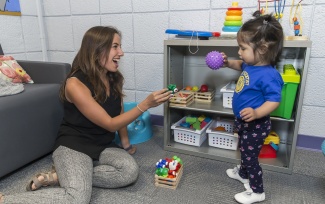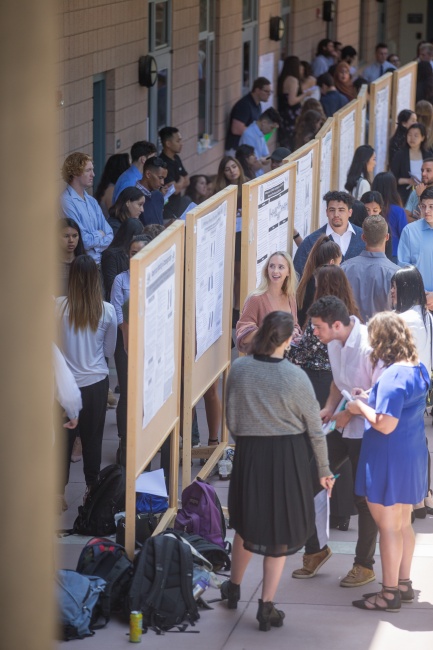
Developmental and Evolutionary Psychology
As an internationally recognized program, the Developmental & Evolutionary Psychology area at UCSB trains experimental psychologists for research and teaching positions in academic settings and for research careers in the private sector. Faculty and graduate students working and studying in this area explore the evolved architecture of the human mind, and how it develops. The graduate program in Developmental and Evolutionary Psychology is unique in that it crosses traditional disciplinary lines.
The brain is composed of mechanisms that use information to regulate our behavior and physiology. To discover how these mechanisms work, it helps to know what problems they evolved to solve and how they develop. Our research asks a series of interrelated questions about these mental mechanisms: (1) Which are specialized for solving an adaptive problem faced by our hunter-gatherer ancestors? What is their design? (2) Which mechanisms reliably develop in all members of our species? (2) When do they emerge in infancy and childhood? (3) How do they change over time, and what features of the environment shape their development? (4) When do these mechanisms give rise to cross-cultural universals versus cultural variation? (5) How do they shape cultural ideas as they pass from one mind to another? Research in DEVO attempts to answer questions like these about all kinds of mechanisms: ones that regulate attention, reasoning, memory, learning, choice, emotion, motivation, physiology...and more.
Specific topics include theory of mind, infant social cognition, intuitive physics, and other “core knowledge” systems; how core knowledge systems shape learning; whether intuitions generated by core knowledge systems are overwritten--or persist-- when they are contradicted by new information, such as scientific or religious beliefs; and how this leads to widespread supernatural ideas. We also investigate cognitive adaptations for reasoning about cooperation; the adaptive function and computational design of emotions; the evolution of moral cognition; and the endocrinology and computational design of mate preferences, attraction, courtship, and mating relationships.
In addition to the Developmental and Evolutionary Psychology Program within the Department, area members are involved in other relevant campus interdisciplinary programs including the Center for Evolutionary Psychology, the Cognitive Science emphasis, and the Quantitative Methods emphasis. These programs bring together scholars in such diverse areas as Anthropology, Biology, Communication, Economics, Education, Linguistics, Psychology, and Sociology. Graduate training is designed to foster a broad understanding of the diversity of processes that give rise to human cognition, through an interdisciplinary approach to studying the developmental and evolutionary origins of human thought, emotion, motivation and behavior.
Prospective Students
The Developmental and Evolutionary Psychology Program (DEVO) is closely linked to two interdisciplinary programs at UCSB:
These programs bring together faculty and students from a variety of disciplines in the biological sciences, the social sciences, and the humanities.
